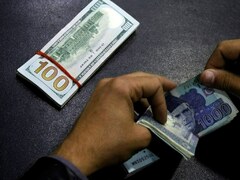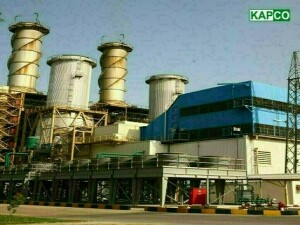Theresa May faced her first nationwide electoral test as Britain's prime minister, just weeks before a crucial general election, as the rancour around Brexit swirled on Thursday. Britons were choosing thousands of new local councillors in a vote that will be closely watched for proof of the strength of May's Conservatives, which opinion polls suggest are on course for a thumping victory in the June 8 parliamentary elections.
Nearly 5,000 local authority seats are being contested across England, Scotland and Wales, along with eight metropolitan mayoralties. Experts caution against using the results to predict the outcome of next month's vote, as they are typically fought on local issues. But the proximity of the general election and the increasingly hostile atmosphere between London and Brussels over the Brexit negotiations look set to overshadow Thursday's polls.
Acting on last year's referendum, May gave the European Union formal notice of Britain's intention to leave the bloc on March 29, and two weeks ago called a surprise general election. She says she wants to strengthen her mandate as she heads into the Brexit negotiations. Speaking outside her Downing Street office on the eve of the local elections, May blasted Brussels for making "threats against Britain" over the divorce proceedings.
The two sides have clashed over the costs of leaving, prompting May to accuse the EU of toughening its stance in statements "deliberately timed to affect the result of the general election" next month. European Parliament President Antonio Tajani on Thursday dismissed the claim, insisting that "no one is trying to influence the outcome". And EU President Donald Tusk warned that early rows over Brexit risked the entire process. "These negotiations are difficult enough as they are. If we start arguing before they even begin they will become impossible," he told a news conference.
"The stakes are too high to let our emotions get out of hand. To succeed we need today discretion, moderation, mutual respect and a maximum of goodwill." But the EU fired a fresh salvo at Britain on Thursday, proposing new rules that would require a huge slice of London's vital banking business to leave the UK after Brexit. Unveiled by European Commission vice-president Valdis Dombrovskis, the rules would deny London the right to host banking "clearing houses" that deal in euros, the EU's single currency.
British opposition leaders have claimed that May is using the EU talks as a distraction from other issues, with Labour leader Jeremy Corbyn accusing her of "playing party games with Brexit". A YouGov poll of 2,066 adults on Tuesday and Wednesday for The Times newspaper put the Conservatives on 48 percent, Labour on 29 percent, the Liberal Democrats on 10 percent and the UK Independence Party on five percent.
Labour says the local election results could show the huge gap could be inaccurate. "Let's see what happens. That might be an interesting measure of how things are going more generally, and how accurate the polling is," a senior Labour source said. Roger Scully, a politics professor at the University of Cardiff, said national issues would inevitably have some effect on Thursday's vote.
"The Conservatives are doing very well and that is almost certainly likely to have some spillover into the local elections," he said. "They will provide some vital information about the pattern of support and where parties are performing particularly strongly or weakly," added Anthony Wells of polling company YouGov. Polling stations close at 10:00pm (2100 GMT), with results due throughout Friday. The smaller, pro-EU Liberal Democrats are hoping to garner some momentum for the June vote with gains on Thursday.
BR100
15,103
Increased By
140.9 (0.94%)
BR30
42,619
Increased By
540.8 (1.29%)
KSE100
148,196
Increased By
1704.8 (1.16%)
KSE30
45,271
Increased By
438.2 (0.98%)






















Comments
Comments are closed.